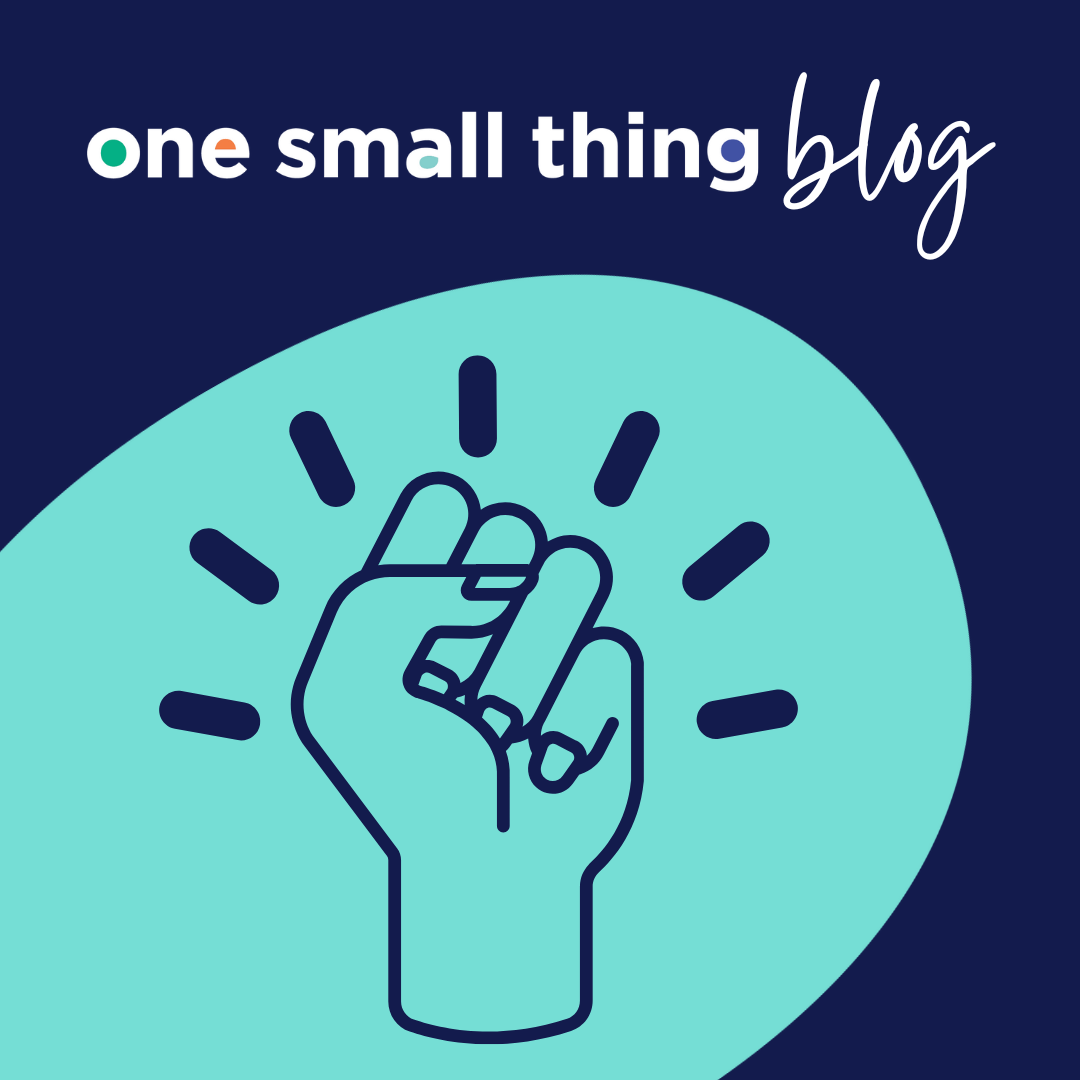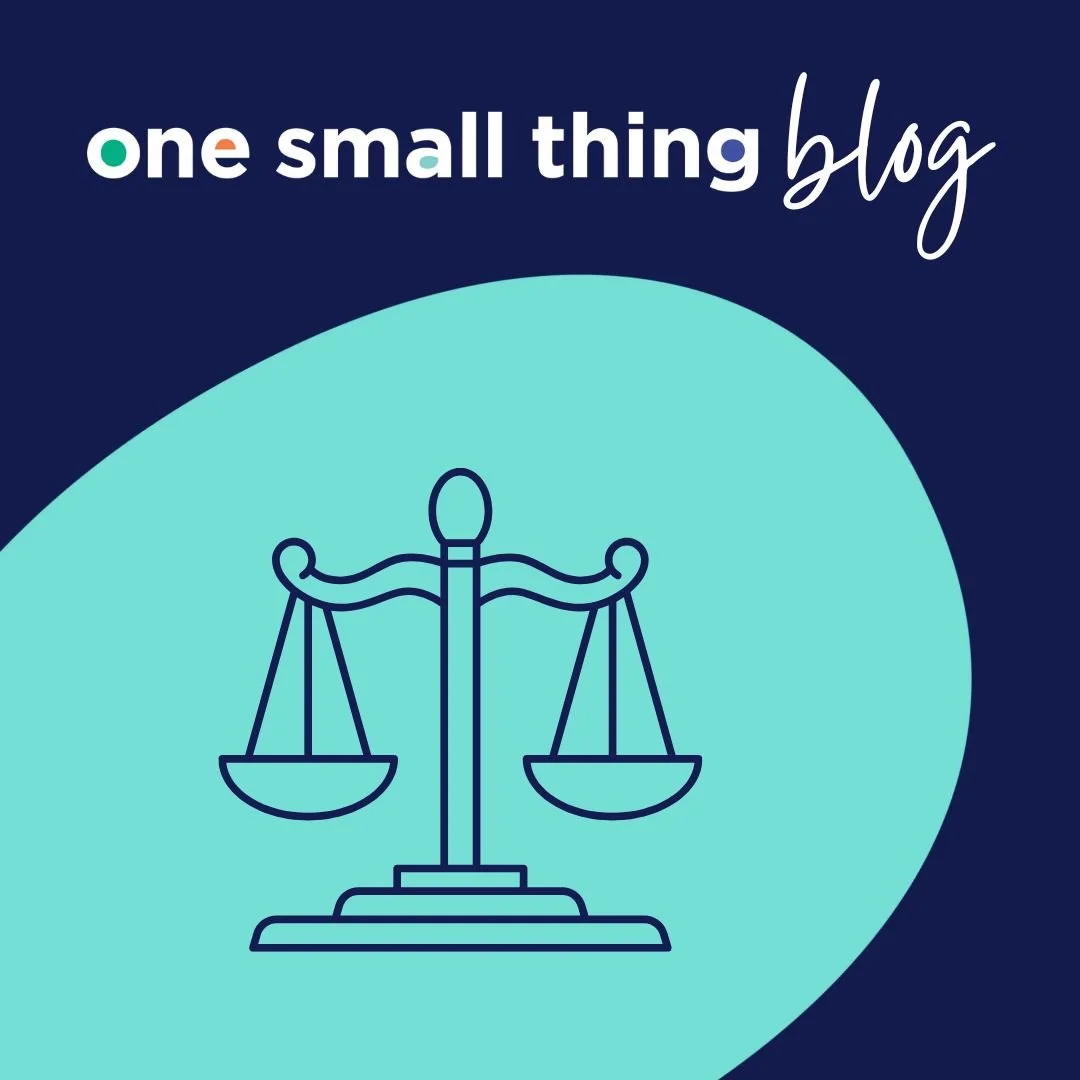Mental Health, A Basic Human Right for those in the Justice System
Lilly Lewis, Women’s Involvement Advisor, One Small Thing
Under the theme of ‘Mental health is a universal human right’, this World Mental Health Day Lilly Lewis reflects on the impact involvement with the justice system can have on women’s mental health, and the lack of mental health support available for those within prison. Lilly also reflects on her own experience of maintaining mental well-being in prison, and how she continues to do this in her current work supporting women with multiple unmet needs.
How Involvement in the Justice System Impacts Mental health
Women suffering with poor mental health should not be sent to prison unless it’s dangerous to the public through a violence offence, or physical harm to others. Prison is no place for women with poor mental health. There are not enough resources in prison to support them, the living conditions are so appalling that they have a negative effect on people’s mental health even if they were deemed as having no mental health issues before prison. The things that you witness other prisoners say and do, and how they act is sometimes very difficult to process. This impacted negatively on my own mental health - seeing women fighting or being restrained by officers were amongst the worst that I witnessed. Seeing women unable to walk because of drugs they had taken and self-harming themselves.
When a woman becomes involved with the Criminal Justice System this will usually start with her being arrested, at this early stage if a woman has poor mental health or is living in trauma the police should have a better approaches and knowledge on how to work with those with experience of trauma. Locking somebody in a police cell in a police station is one of the worst experiences any women could have. Police stations tend to have more men in them, both staff and others that have been arrested.
In my own experience I have always thought that there should be a woman with lived experience of the criminal justice system in the station to support women who have been arrested and explain the process of what will happen to them, being aware of the trauma they may have experienced. At this first contact with a woman with poor mental health, she should be signposted to support and mental health workers notified so they can pick this up when the women is released, sometimes with no money and no way to get home.
Women being sent to prison for their own protection is appalling and one of the most horrendous things you can do to a woman with poor mental health.
Sent to a place where you will be locked up for hours on end in a metal box as your home, surrounded by other women with poor mental health also unable to cope, you may even share a cell with them. There’s never enough staff around to help you and not enough mental health workers to give you the care you need. I have witnessed women being sent to prison for their protection and how rapidly their mental health gets worse, some women are confused as to where they are or why they are there. The negative impact this has on woman is catastrophic and may take years to repair, if at all.
Working in a way that understands and responds to trauma is a must when working with any woman who is affected by the Criminal Justice System. However, when working with women who also have poor mental health, understanding the impact of trauma is vital to ensure that the woman is not further traumatised. My own experience of having poor mental health through years of trauma starting from childhood, then being arrested and targeted by both social services and the police, became unbearable for me. The care I received in mental health facilities was equally retraumatising.
I have recently visited a lady I support in a mental health facility. She is also facing her own problems being affected by the Criminal Justice System as both a victim and perpetrator of crime. To my dismay the staff were mainly sitting in huddles chatting and talking about patients, uninterested in the woman they were there to support. All mental health workers who will come into contact with women who are affected by the Criminal Justice System, must also receive training on how to support those who have experienced trauma.
I hear a lot about how organisations are using ‘trauma informed’ approaches, although I am not entirely sure the authorities know what that means in practice.
My Experience of Maintaining Mental Wellbeing is Prison
Although not always easy, whilst in prison I took steps to protect my mental wellbeing. One of the ways I did this was through work, and supporting others. Whilst in prison I had numerous roles including Youth offender mentor, supporting young people between the ages of 18 -21. Some had come straight from youth offender institutes, I would help the process of settling into prison life sometimes it would be life skills such as keeping their cell tidy or applying for education or prison jobs. I was as Samaritan listener on call 24 hours a day in case they found themselves in crisis and felt unable to cope and wanted to harm themselves. I was also Shannon trust reading mentor supporting women who could not read or write. Sometimes I would read letters for them or help them to write to family and friends if needed.
I also found faith and spent lots of time reading the bible as well as spending time in the chapel, I got confirmed by the Bishop of Staffordshire I was the first female prisoner to be confirmed in 17 years at HMP Drake Hall, and my mum and daughter came to the service.
I also focussed on my physical health by regularly exercising and through diet. I went into prison over weight and unhealthy, I became vegan for a short time and then would use my prison wages to make purchases from the canteen (prison shop). I was happy with how my body was changing and I felt mentally stronger as well as physically. I found that working out improved my wellbeing brought happiness to me.
Each night I would meditate I saved up to purchase a DVD player and then would rent dvd from the prison library or purchase DVD on law of attraction, or guided meditation things such as Paul Mckenna, and The Secret. I would take all the old magazines from the library and create vision boards I manifested my life today, these simple things made me happy and helped me do all my roles positively.
Looking After your Mental Health in your Work
My working life today can be emotionally tiring as well as physically tiring. I support women with multiple unmet needs, as well as working in my role as Women’s Involvement Advisor at One Small Thing, advocating for changes for women and children in the justice system.
I learnt so much about selfcare and looking after my emotional wellbeing whilst in prison, that I never really stopped my prison regime. I get up around 5am, I write in my gratitude journal, I do a little workout on YouTube even if its 10 minutes to get my body moving, and I pray – I talk to God. I write in journals and reflect on my day, if I have had a really difficult day, I will talk to my manager about how the situation had made me feel.
I believe that when you work in a position you are passionate about, or like me are often drawing on the most negative things that have ever happened to you and using that experience to make better outcomes for someone else, it is exhausting.
I laugh with the women I support, I cry with the women I support, but most of all I am by their side until their situation changes for the better.
I didn’t feel real happiness until I went to prison. I know that may sound strange, but I never felt wanted or worthy. I was fuelled with alcohol and drugs. I had lost my children to the care system, my eldest daughter refused to speak to me, the people who had adopted me in their own words “had washed their hands of me”.
I find happiness every day in the work I do, I have changed the way I look at being triggered, I am not being triggered to bring on anxiety and pain, I am triggered to remember all the difficulties I have experienced and remind myself how far I have come. I’d like to be a reminder to others that no matter what you are going through, there can be a positive outcome.
Enjoying the work I do allows me to really enjoy the things outside of work like spending time making memories with my family, my fiancé and knowing how far I have come.
This World Mental Health Day, we must remember that mental health is a basic human right for all. Women in the justice system disproportionately experience poor mental wellbeing, which can often be as a result of their involvement in the justice system.
Those within the justice system deserve equal access to the support that can help them live healthy and happy lives.
Written by: Lilly Lewis, Women’s Involvement Advisor at One Small Thing









